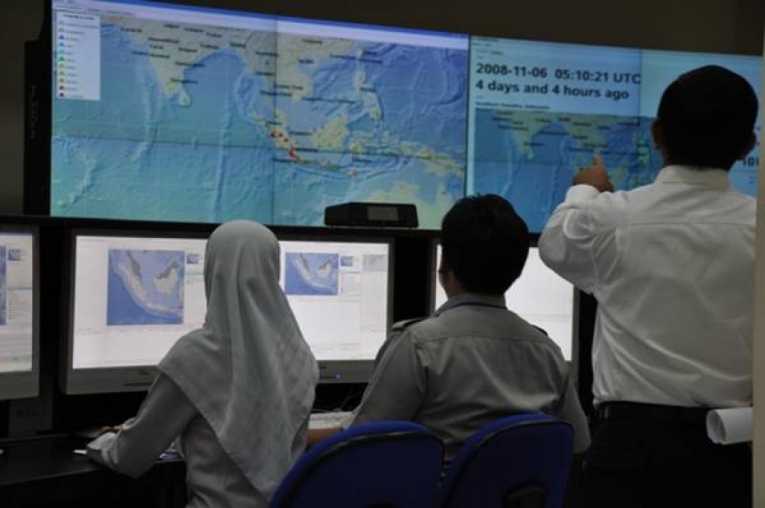The tsunami in October, this year, in Indonesia, triggered off by an earthquake off the coast of Sumatra, claimed more than a 100 lives. People affected had to live in makeshift tents, rescued after missions fought their way to reach the remote the Indonesian islands battered by a 10-foot tsunami. But now an early warning system recently developed and implemented might prevent such disasters.
After the tsunami that hit on 26 December 2004, the Federal Government of Germany contracted the Helmholtz Association, represented by the Helmholtz Centre Potsdam - GFZ German Research Centre for Geosciences, to work on and execute an early warning tsunami system in the Indian Ocean.
Feasible project
The funds to the amount of 45 million euros are a contribution of the Federal Government from the aid-for-flood-victims pool. This project titled the German-Indonesian Tsunami Early Warning System for the Indian Ocean (GITEWS) has now implemented. But setting up the entire project isn't completed yet. This is scheduled to be concluded by March 2011 after which Indonesia will work for the upkeep of the system.
"The innovative technical approach of GITEWS is based on a combination of different sensors, whose central element is a fast and precise detection and analysis of earthquakes, supported by GPS measurements," said Reinhard Huttl, of the GFZ German Research Centre for Geosciences.
The important conclusion is that even with the extremely short premonition times off Indonesia, the GITEWS system has proven to be technically and organizationally functional.
The best part of this system is that even with very short warning times the GITEWS system has shown evidence to be technically and organizationally practical. The whole system of GITEWS includes seismometers, buoy systems and tide gauges. Once information regarding a tsunami is received the information is converted into a situation map providing the right warning levels for the affected coastline.
Natural phenomenon like the tsunami of 2004 cannot be prevented, say experts, and such disasters will continue to claim victims, even with a perfectly working alarm system but repercussions can be minimized.
While the warning system does increases chances of saving lives, people have to be trained to deal with disaster. As the developers say victims have to know how to behave during earthquakes and make life saving behavior a part of their lives.
Image source: A. Helm (GFZ)















